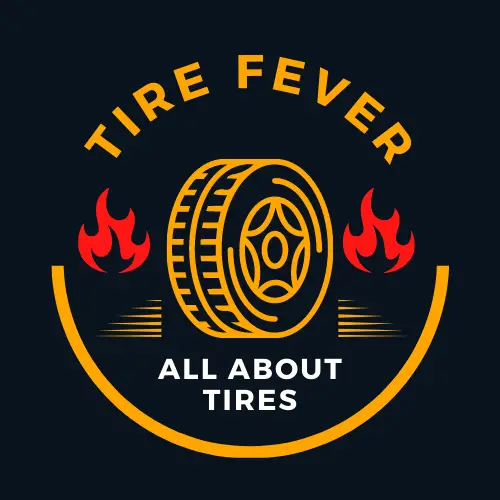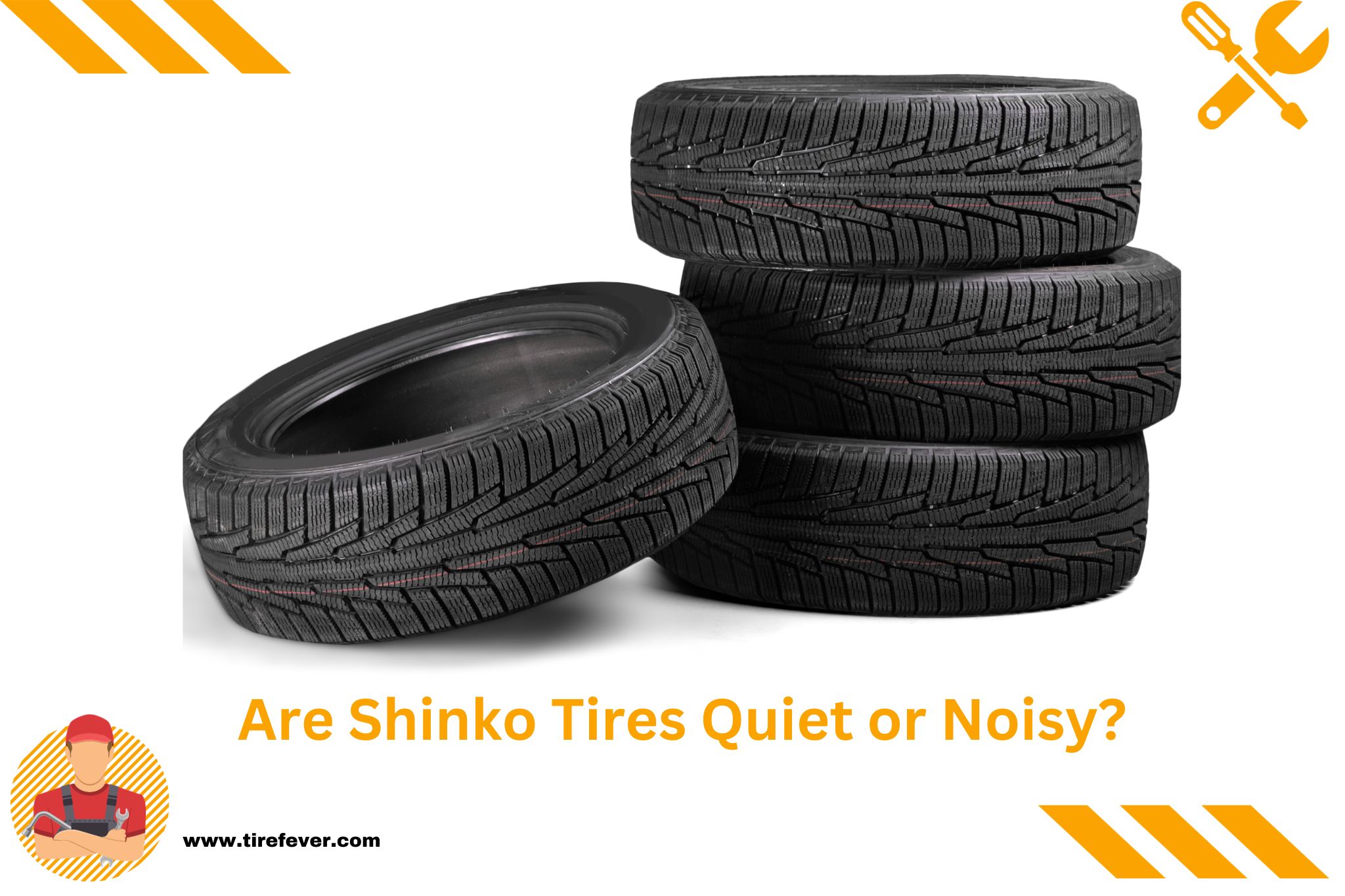Are Shinko tires known for their quiet performance or do they tend to make a lot of noise on the road? That’s the question many drivers find themselves asking when considering these tires for their vehicles. When it comes to tire performance, noise can be a significant factor in determining overall satisfaction. After all, who wants to be constantly bombarded with loud and annoying road noise during their daily commute or long road trips? In this blog post, we will explore the noise levels of Shinko tires and provide you with a comprehensive analysis to help you make an informed decision for your next tire purchase.
When it comes to tire noise, there are several factors that can come into play. The tread pattern, tire construction, and the type of road surface all contribute to the overall noise level. Shinko tires, like any other brand, have their own unique characteristics that can affect the noise they produce. By understanding these factors and considering real-world experiences from drivers, we can gain valuable insights into whether Shinko tires are indeed quiet or noisy. So, let’s dive in and uncover the truth about Shinko tires and their noise levels on the road.
Are Shinko Tires Quiet or Noisy?
When it comes to buying new tires a lot of factors come into play. One big one is tire noise. This is a crucial aspect that most drivers can’t ignore as they embark on their tire-searching journey.
So, are Shinko Tires quiet or noisy? Shinko Tires are generally known to be quiet, providing a smooth and comfortable ride for drivers.
In a hurry here are our top 6 tire recommendations:
- Best Budget Tires
- Best Mid-Range Tires
- Best All-Season Tires
- Best Summer Tires
- Best Winter Tires
- Best Performance Tires
Understanding Tire Noise
Tire noise refers to the sound produced by the tires as they roll on the road surface. It is an important aspect of vehicle performance and can significantly impact the comfort and overall driving experience.
Understanding tire noise involves recognizing the different types of noises and their causes. One common type of tire noise is known as tread pattern noise, which is generated by the interaction between the tire tread and the road surface.
This noise can vary depending on the design and depth of the tire tread, as well as the road conditions. Another type of tire noise is known as tire whine, which is typically caused by uneven wear or misalignment of the tires. This noise can be more noticeable at higher speeds and may indicate the need for tire rotation or alignment.
To understand tire noise, it is important to consider the factors that contribute to its generation. One such factor is tire design, including the tread pattern and the materials used. Different tread patterns can produce varying levels of noise, with more aggressive patterns generally generating more noise.
Road conditions also play a significant role in tire noise, as rough or uneven surfaces can amplify the sound. Finally, tire maintenance and proper inflation are crucial in reducing tire noise. Underinflated or overinflated tires can lead to increased noise levels, as well as uneven wear, which can further contribute to tire noise.
Also Read: goodyear efficientgrip vs michelin crossclimate
Factors Influencing Tire Noise
There are a number of factors influencing tire noise. These include:
Tread pattern:
The design and arrangement of the tread pattern on a tire greatly affects the amount of noise it produces. Tires with aggressive tread patterns, such as those found on off-road or winter tires, tend to generate more noise compared to tires with smoother and less aggressive tread patterns.
Tire compound:
The type of rubber compound used in a tire can also impact its noise level. Softer rubber compounds, often used in high-performance tires, tend to generate more noise as they grip the road surface more aggressively, resulting in increased friction and noise.
On the other hand, harder rubber compounds, commonly used in all-season or touring tires, can provide a quieter ride.
Tire size:
The size of the tire, particularly the width and aspect ratio, can influence the amount of noise it produces. Wider tires generally produce more noise compared to narrower ones, as the wider contact patch creates more friction and consequently more noise.
Additionally, tires with a lower aspect ratio (shorter sidewalls) may generate more noise due to reduced cushioning and increased rigidity.
Tire age and wear:
As tires age and wear down, they tend to produce more noise. This is because the tread becomes shallower, reducing the tire’s ability to absorb road vibrations and noise. Additionally, worn-out tires may develop irregular wear patterns, leading to increased noise levels.
Other factors influencing tire noise include road surface conditions, vehicle speed, and air pressure in the tires. It’s important to consider these factors when selecting tires, as noise levels can greatly impact the overall comfort and driving experience.
You May Also Like: Uniroyal Tire Chunking
Are Shinko Tires More Quiet Than Other Brands?
Yes, Shinko tires are generally quieter than other brands due to their advanced noise reduction technology and specialized tread patterns. Their focus on minimizing road noise ensures a smoother and quieter ride for drivers.
In addition to their noise reduction technology, Shinko tires also prioritize comfort and performance. Their innovative design and construction contribute to a quieter driving experience, allowing drivers to enjoy a more peaceful and enjoyable ride.
Are Shinko Tires More Noisy Than Other Brands?
Shinko tires are not necessarily more noisy than other brands. The noise level of a tire depends on various factors such as tread pattern, tire size, and road conditions. While some Shinko tire models may produce more noise compared to certain other brands, it is important to consider that noise levels can vary within a brand depending on the specific tire model and its intended use.
When comparing tire noise, it is crucial to consider the specific tire model and its intended purpose. Different tire models are designed with varying tread patterns and rubber compounds, which can affect noise levels. Additionally, tire size and road conditions can also contribute to the overall noise produced by a tire. Therefore, it is recommended to research and compare specific tire models within a brand to determine their noise characteristics accurately.
What Shinko Tires are the Quietest?
When it comes to finding the quietest Shinko tires, there are a few options worth considering. Here are three key points to keep in mind:
- Shinko 777: This tire is known for its excellent noise reduction capabilities, providing a smooth and quiet ride.
- Shinko 230 Tour Master: Designed for touring bikes, this tire offers reduced noise levels and enhanced stability.
- Shinko 712: With its advanced tread pattern, this tire minimizes road noise and ensures a quiet and comfortable ride.
These Shinko tire models prioritize noise reduction, making them ideal choices for riders seeking a quieter experience on the road.
What Shinko Tires are the Noisiest?
When it comes to noise levels, some Shinko tires tend to be louder than others. Here are a few key points to consider regarding the noisiest Shinko tires:
- Shinko 777: Known for its aggressive tread pattern, this tire can produce more noise on the road.
- Shinko 230 Tour Master: While providing excellent grip and handling, this tire may generate more noise compared to other models.
- Shinko 712: Although it offers good performance and value, it can be slightly noisier than some other Shinko tire options.
Please note that noise levels can also vary depending on factors like road conditions, vehicle type, and individual preferences. It’s always recommended to read customer reviews and consult with professionals to determine the best tire choice for your specific needs.
Shinko Tires Aproach to Noise Reduction
Shinko Tires has implemented an effective approach to noise reduction in their products. Here are some key points about their approach:
- Extensive research and development to identify noise sources and their impact on tire performance.
- Utilization of advanced tire design techniques to minimize noise generation during operation.
- Incorporation of innovative tread patterns and materials to reduce road noise and vibrations.
- Integration of noise-absorbing technologies to dampen tire noise and enhance overall driving comfort.
- Continuous testing and refinement of noise reduction strategies to ensure optimal performance and customer satisfaction.
- Commitment to eco-friendly practices by producing quieter tires that contribute to a quieter and more enjoyable driving experience.
Shinko Tires’ approach to noise reduction showcases their dedication to delivering high-quality and quieter tires to enhance the driving experience for their customers.
Related: Are Summit Tires Quiet or Noisy?
Conclusion
Shinko Tires are generally known for their quiet and comfortable ride, thanks to their advanced noise reduction technology and specialized tread patterns. While noise levels can vary within the brand depending on the specific tire model and its intended use, there are quieter options available such as the Shinko 777, 230 Tour Master, and 712 models. Shinko Tires’ approach to noise reduction demonstrates their commitment to providing high-quality and quieter tires for a more enjoyable driving experience.
This post contains affiliate links. Read the full disclosure here.


I am passionate about all things automotive and have a deep understanding of the topic. As a mechanic, I use my free time to share knowledge of everyday challenges that any car owner can experience – helping you make informed decisions about tires.

